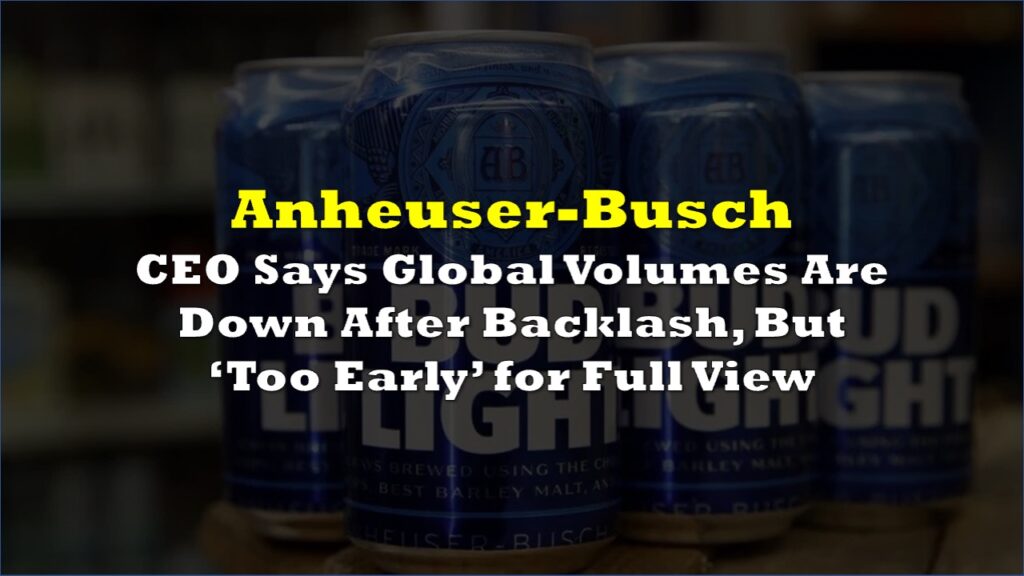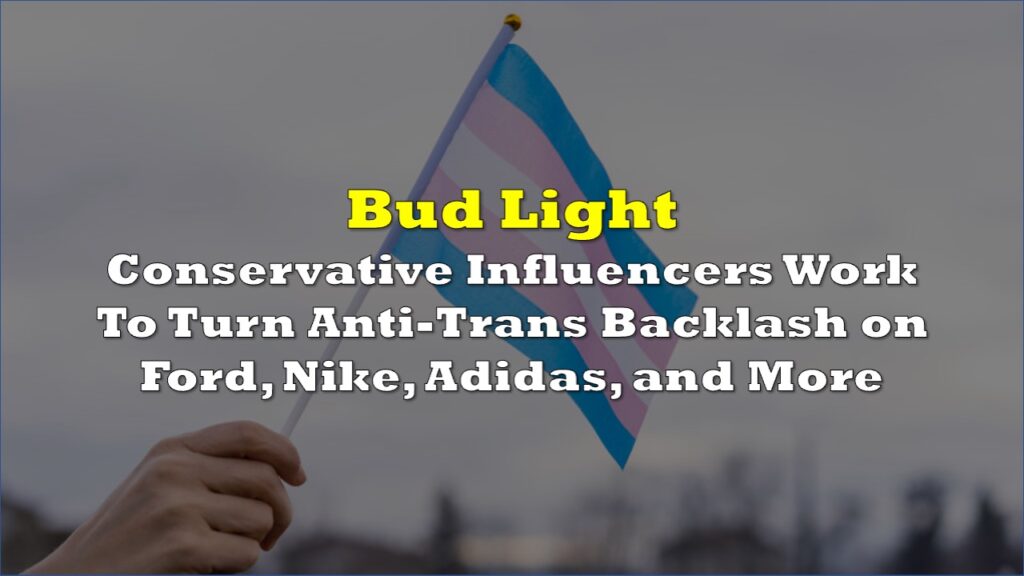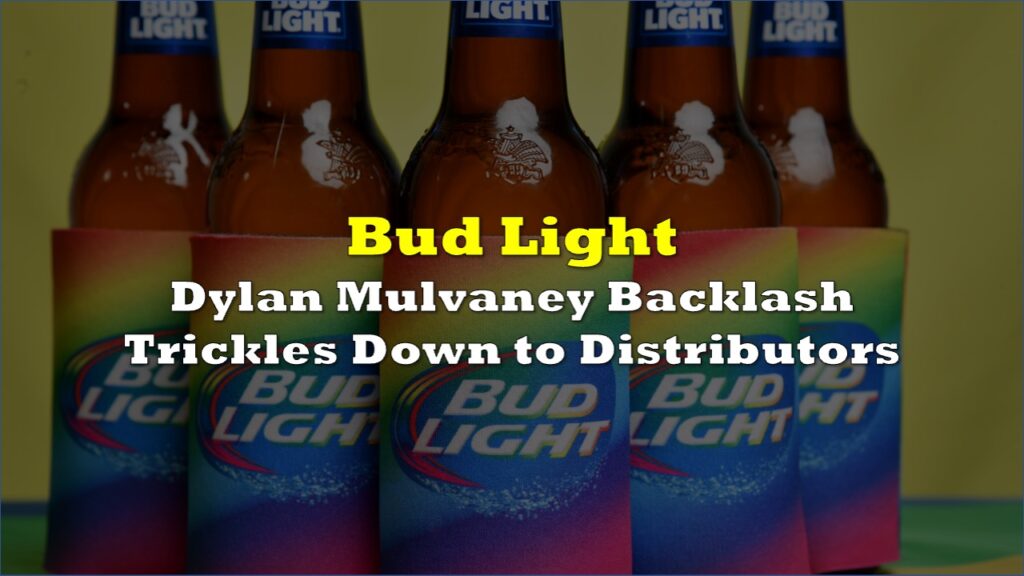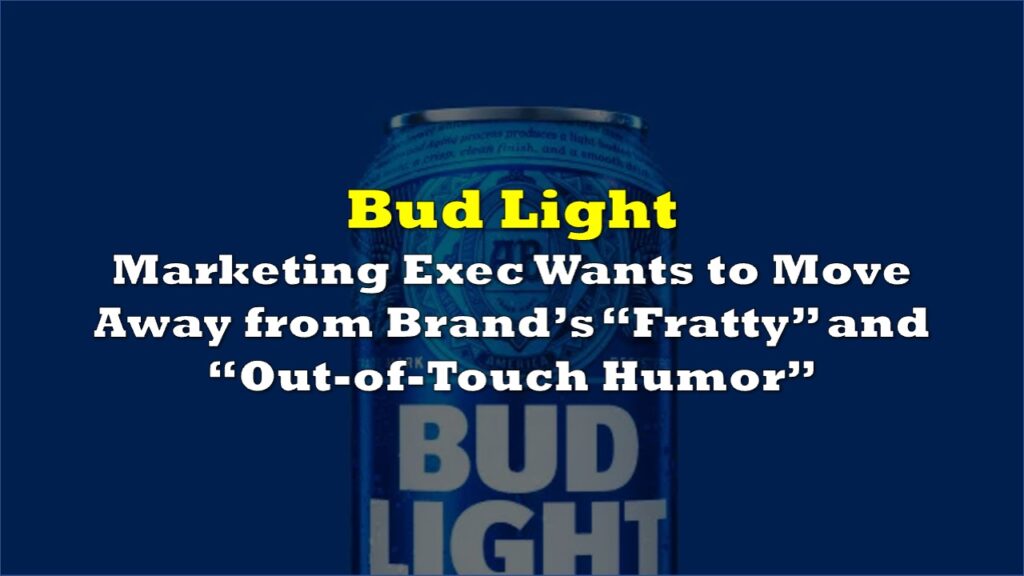The Human Rights Campaign (HRC) informed Bud Light maker Anheuser-Busch InBev (NYSE: BUD) that it has suspended their Corporate Equality Index score, which is a tool that ranks firms based on their policies for lesbian, gay, bisexual, transgender, and queer employees.
This comes after the apparent backtracking of the beverage firm in tapping transgender influencer Dylan Mulvaney following the conservative backlash that ensued.
Companies that receive a perfect score on the index’s four criteria – protections from workplace discrimination, inclusive benefits, inclusive culture inside and outside the workplace, and responsible citizenship – receive the Human Rights Campaign’s “Best Places to Work for LGBTQ+ Equality” seal of approval.
Anheuser-Busch, which received a score of 100, has 90 days to react or the Human Rights Campaign may consider docking its score, according to the letter.
The beer company reiterates that it that supports LGBTQIA+ employees, adding that its employee resource groups “are intended to be a safe space for those who identify with a given community and those who wish to be allies.”
Bud Light received backlash from conservative beer drinkers recently when the brand engaged Mulvaney in its March Madness campaign. The deal is one of many that the brand has with a host of different influencers as a way to reach out to the younger demographic.
Mulvaney, primarily known on Tiktok where she has 10 million followers, promoted Bud Light’s March Madness promo on her Instagram. The influencer shared in the video that she recently celebrated her first year into transitioning and Bud Light gifted her with a special beer can commemorating the occasion.
“This month I celebrated my 365 days of womanhood and Bud Light sent me possibly the best gift ever — a can with my face on it,” Mulvaney said.
A highlight of the call to boycott the beer maker came from American rapper Kid Rock, who shot cases of Bud Light with a submachine gun in a video he posted on Twitter.
Alissa Heinerscheid, Bud Light’s Vice President of Marketing, spoke on a podcast defending the promotional effort, saying that her job was to “evolve and elevate this incredibly iconic brand.”
“I am a businesswoman. I had a really clear job to do when I took over Bud Light, it was…this brand is in decline. It has been in decline for a very long time. And if we do not attract young drinkers to come and drink this brand, there will be no future for Bud Light,” she said.
At that time, Anheuser-Busch stood by the brand’s decision to enlist Mulvaney as one of its influencers and said that the brand will continue to work with influencers to connect with their many different audiences.
However, the boycott grew legs and affected sales. Anheuser-Busch then put two of its executives on leave and issued a statement from its CEO Brendan Whitworth: “We never intended to be part of a discussion that divides people. We are in the business of bringing people together over beer.”
But in terms of market share, Bud Light is still well ahead of its two competitors at 32.7%. Coors Light is at 23% while Miller Lite is at 20.5%.
Whitworth’s statement, however, sparked outrage among LGBTQ people and allies.
According to Eric Bloem, HRC’s senior director of programs and corporate advocacy, Anheuser-Busch’s withdrawal of support for the LGBTQ community in the face of anti-trans and hate-filled rhetoric sends a message to employees, shareholders, and customers that the company does not stand up for the values of diversity, equity, and inclusion that it espouses.
“Anheuser-Busch had a key moment to really stand up and demonstrate the importance of their values of diversity, equity and inclusion and their response really fell short,” Bloem said.
For her part, Mulvaney, who was targeted by anti-trans abuse, posted about the experience on Instagram: “I think it’s okay to be frustrated with someone and confused, but what I’m really struggling with is the need to dehumanize and to be cruel.”
In a Wall Street Journal report, the beer maker is reportedly trying to make amends with its distributors as they are the ones who’ve taken the pain of the backlash, losing millions in sales. The company has pledged that it would increase marketing spend on Bud Light and accelerate the creation of a new set of ads, and offer a case of the beer to every employee of its wholesalers.
The Human Rights Campaign has already suspended a company’s Corporate Equality Index score. It revoked Netflix’s score in response to the company’s treatment of comedian Dave Chappelle’s transphobic remarks in his 2021 stand-up special “The Closer.”
The issue has already caught the Republican’s attention. Senator Ted Cruz of Texas has called for an investigation into the Bud Light parent company, alleging that the beermaker, in working with Mulvaney, was potentially marketing the alcoholic beverage to a younger audience.
Cruz, along with Senator Marsha Blackburn of Tennessee, claim that the audience of the influencer’s TikTok series, “Days of Girlhood,” is skewed to a demographic that’s too young to legally consume alcohol.
“The use of the phrase ‘Girlhood’ was not a slip of the tongue but rather emblematic of a series of Mulvaney’s online content that was specifically used to target, market to, and attract an audience of young people who are well below the legal drinking age in the United States,” Cruz and Blackburn wrote in a letter addressed to Whitworth.
The two also called on Whitworth to “publicly sever its relationship with Dylan Mulvaney, publicly apologize to the American people for marketing alcoholic beverages to minors, and direct Dylan Mulvaney to remove any Anheuser-Busch content from his social media platforms.”
The fight for rights
The Bud Light incident occurs at a pivotal juncture in LGBTQ rights history.
Hundreds of measures aimed against LGBTQ individuals, particularly transgender persons, have been submitted in statehouses across the country by Republican lawmakers, aiming to limit what bathrooms they may use, what medical treatment they can receive, and what sports teams they can participate on.
In particular, its a transgender issue that sparked the public spat and legal battle between Disney and Florida Gov. Ron DeSantis. Disney and DeSantis have been at odds since March 2022, when Disney’s then-CEO Chapek denounced legislation in Florida that would limit discussion of gender identity and sexuality in elementary classrooms.
Last year, DeSantis challenged Disney’s long-held self-governing rights when the company objected to his so-called “don’t say gay” laws, which restrict the teaching of gender and LGBTQ+ issues in Florida schools.
Just weeks after Disney condemned the classroom bill, DeSantis approved legislation to repeal the special designation. The action sparked fears that Florida taxpayers in the two bordering counties may face a massive tax bill. The state legislature passed new legislation in February that kept the district intact while allowed DeSantis to pick its five board members.
In response, Disney, which has always appointed members to its oversight board, enacted agreements that kept such powers out of the hands of the DeSantis-appointed board. The newly elected board of the district — now known as the Central Florida Tourism Oversight District — claimed that their Disney-aligned predecessors had deprived them of many of their responsibilities.
Disney then filed a lawsuit against DeSantis, alleging that he had subjected the company to a “targeted campaign of government retaliation.”
The entertainment conglomerate wants a court to quash the state’s efforts to manage Walt Disney World in Orlando. The complaint was filed only minutes after a DeSantis-appointed monitoring board voted to overturn February agreements that permitted the firm to develop the theme park while maintaining control over adjoining properties.
Last week, Disney canceled plans to develop a nearly $1 billion corporate campus in Florida that would have employed 2,000 people, although the firm has not tied the move to its feud with the state governor.
Anheuser-Busch InBev last traded $59.38 on the NYSE, falling over 8% since the backlash.
Information for this story was found via USA Today and the sources and companies mentioned. The author has no securities or affiliations related to the organizations discussed. Not a recommendation to buy or sell. Always do additional research and consult a professional before purchasing a security. The author holds no licenses.









